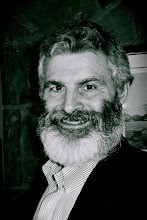What I oppose is excessive taxation and the resulting excessive concentrations of power that have accumulated with the steady growth of the state over my lifetime and beyond.
I would gladly fund [pay taxes, if necessary] a minarchist government that possesses a mandate in which I believe. The fact that all Western governments have evolved their mandates greatly beyond the scope of government operations of 100 years ago is of great concern to me and should be of great concern to all citizens who value individual freedom AS WELL AS state protection of property ownership [ by "property", I mean in the broadest sense of the word = includes your body, mind and material belongings]
A wise friend once told me that: "The currency of government is votes". In addition, the lubrication of the vote-getting machinery is money. All successful politicians within the major parties know these and play the political game by following this formula.
Libertarians are at a huge electoral disadvantage as compared to the established major parties because we are not prepared to "buy votes" by lubricating large, politically-organized and ideologically-aligned "special interest" factions of the voting populations [such as unions]. This kind of lubricating behaviour goes against everything that Libertarians believe…. it makes my DNA crawl with disgust.
A minarchist government, to me at least, would support the property rights of every citizen EQUALLY regardless of their affiliations or beliefs. Would I expect taxation to fund these operations? Yes, If no better way were available. Would I expect the delivery of these services to come from private-sector, "for-profit" business operators? Yes, whenever possible and supported by a sound business case.
I am a member and supporter of the OLP because I am operating on the belief that all other members and supporters share this vision with me. I am, and have always been, a successful businessman who has profound faith in unfettered free-market capitalism. I have seen it work first-hand since I held my first job in 1966 as a factory worker during a summer job. Do abuses occur in free-market, capitalistic enterprises? Undoubtedly…. but no worse than those that come at the hands of our political leaders who have led us inexorably towards inefficient, often corrupt, self-serving, monopolistic and power-abusing statism with its endlessly sprawling public institutions.
Wherever and whenever power amasses within large bodies of people and around issues involving access to huge amounts on money, there is a tendency for power-hungry, influential and corrupt citizens to make an appearance. The 'checks and balances' to curb corruption are generally very effective in unfettered, capitalist free-market enterprises where consumers freely vote for the success or failure of the business with their purchasing behaviours. On the other hand, corruption is much more likely in public institutions where the 'checks and balances' to curb corruption are comparatively non-existent. Why? … because nearly all government funding comes from coercive sources [taxation] and individual citizens' votes carry no political weight when compared to the large, politically-organized and ideologically-aligned "special interest" factions of the voting populations [ such as unions].
This is why I favour decentralized political structures as much as possible. Within these, each citizen will have a better chance of knowing the people and the issues that are central to their community. The amount of money involved in these decentralized governing organizations will be limited to that which can be raised within each community and consequently, will be comparably much less than the budgets of our existing, huge centralized governments where millions of taxpayers dollars are often thrown about in political discussions with little more concern than if they were rounding errors on a spreadsheet.
Read the last chapter of Bill Gairdner's " The Trouble with Canada" to get a glimpse of a decentralized political model that is used in Switzerland. I would love to see the OLP rally around this vision of democracy. :-)
